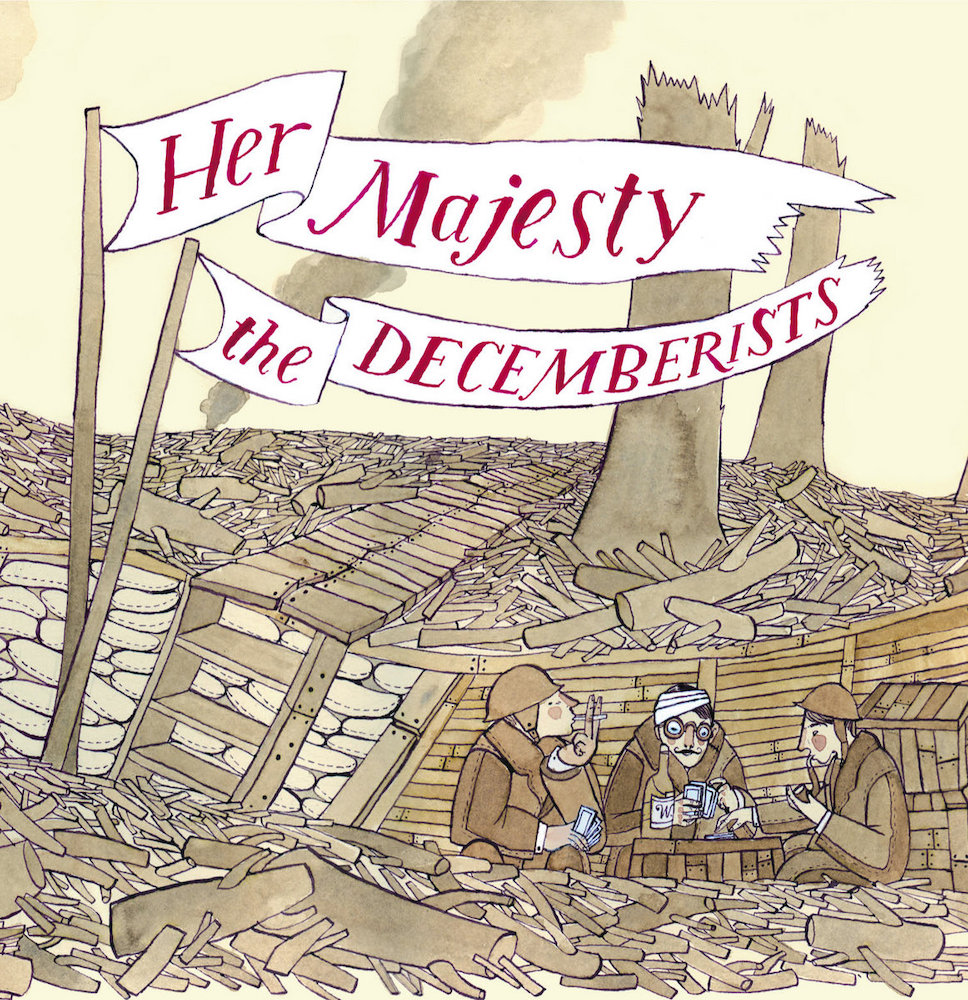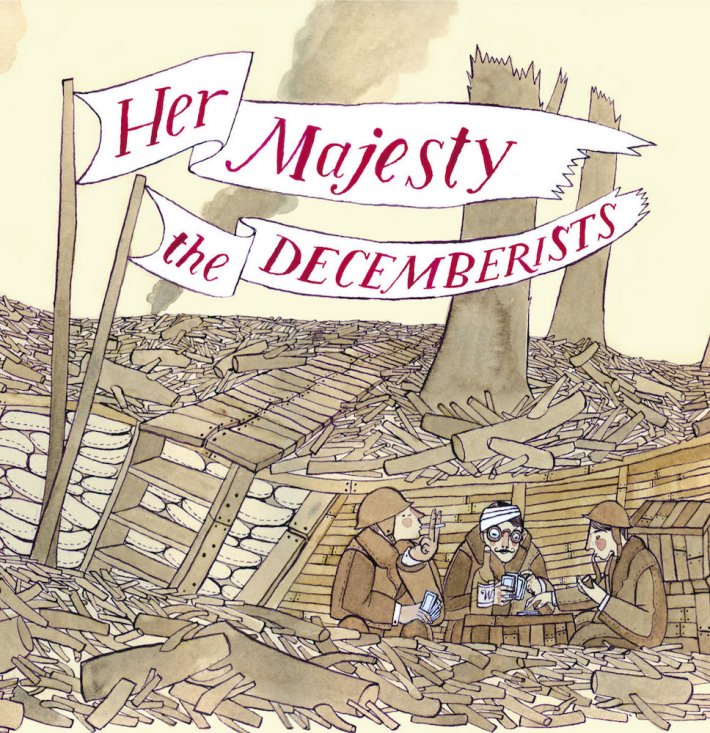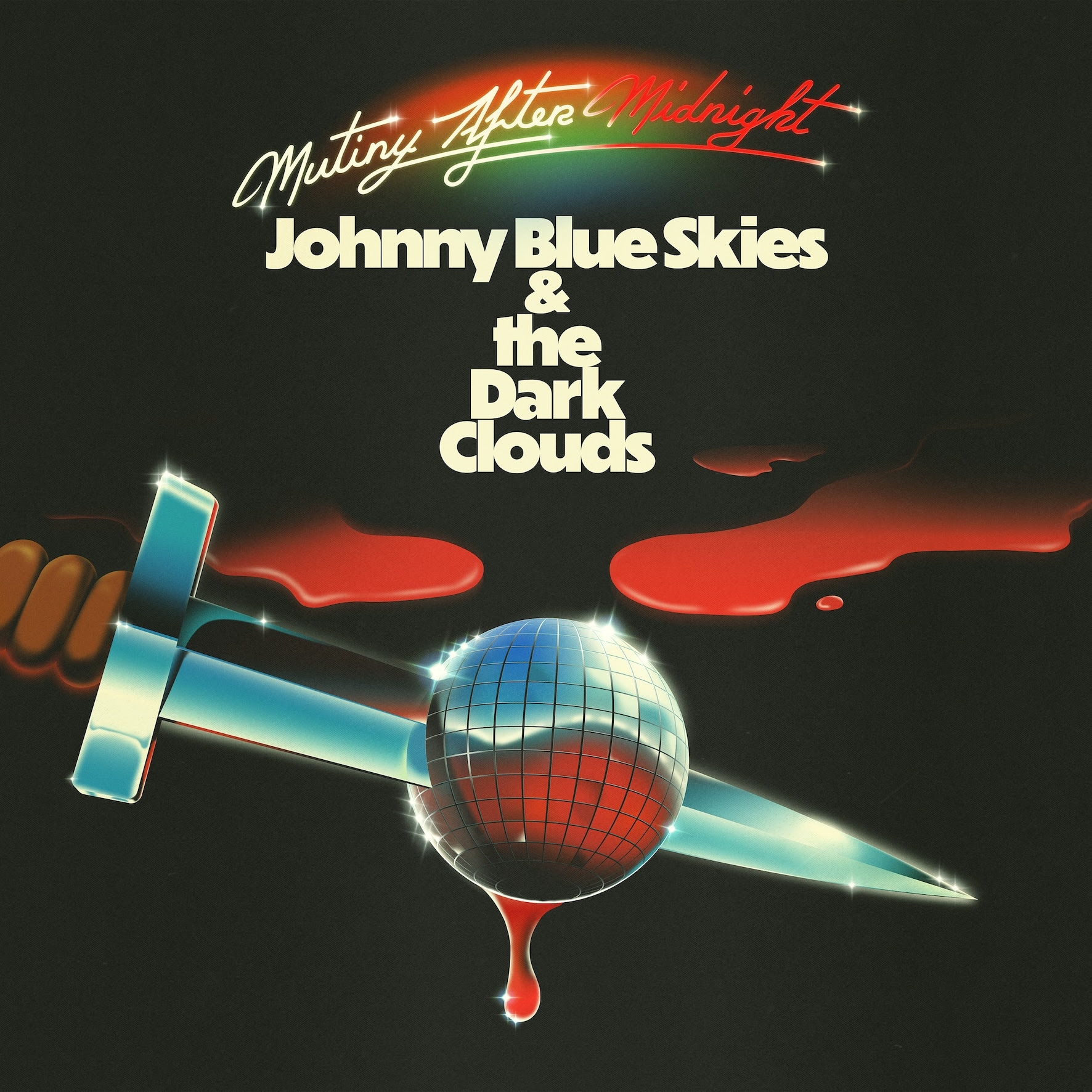- Kill Rock Stars
- 2003
The Decemberists have something in common with the contents of a college-age boy's dorm room. Pulp Fiction is legitimately a good movie, and I guess Infinite Jest has more value beyond being a very heavy paperweight. Some names you hear and are instantly transported to a dimension you once could exist in and think wow, this slice of the universe is like a carnival I never want to leave! Then time elapses, you get older, the world itself widens, you gain perspective, and those pieces of art that sent your brain flying in different directions seem smaller, more quaint, and stereotypically pretentious. Her Majesty The Decemberists, released 20 years ago this Saturday, is one of those things.
Between Her Majesty The Decemberists, its 2002 predecessor Castaways And Cutouts, and the Portland collective's 5 Songs EP, my high-school mind saw through time and space, entering a new galaxy of theatrical, highbrow indie pop, hyper-literary, sea-shanty lyrics, a prominently featured accordionist, and a professorial-looking frontman, Colin Meloy.
In my old Volvo 850, I used to drive around Central Jersey sounding out "Finiculi finicula finiculi finicula" and "I know New York I need New York/ I know I need unique New York" with the kind of self-seriousness you are only allowed to have between the ages of 15-25. Then the rest of your life happens and certain formative albums, books, and movies get slotted into the category of "I guess you just had to be there." Other pieces of media in this realm include anything by Charles Bukowski, Donnie Darko, The Catcher In The Rye, getting high and listening to The Dark Side Of The Moon, and bragging about not owning a TV or a cell phone.
If you'd guess I don't still love Her Majesty The Decemberists based on these observations, you'd be incorrect. I can still order a gin and tonic while nursing memories of a college semester spent abroad in London (when a G&T was my go-to drink). But will I get the same experience out of that drink at 36 as opposed to 20? Not really -- not at all.
Looking back, the Decemberists are one of the most Portland bands to ever Portland in Portland. By 2003, Colin Meloy (vocals, guitar), Jenny Conlee (keyboard, accordion), Chris Funk (guitar, pedal steel), Jesse Emerson (electric and upright bass) and Rachel Blumberg (drums, vox) had found an unexpected wave of local and critical success from Castaways And Cutouts (a more satisfying, darkly poignant, and classic album all around, in my opinion). The band got signed to Olympia indie incubator Kill Rock Stars, reissued Castaways And Cutouts, and set about recording a follow-up, Her Majesty.
Compared to its predecessor, the 11-song Her Majesty (containing art by Meloy's now-wife, Carson Ellis) is brighter, cleaner, better produced, and more upbeat. It's also less cohesive than Castaways, an album that made a better case for what the Decemberists are selling: On the ambling, majestic, and aching cuts like "Odalisque," "Cocoon," and the stunning minor-key voyage "Here I Dreamt I Was An Architect," you can practically envision the band floating aimlessly on their 19th century boat, through the fog and doldrums. On Castaways, the band embodies their vivid stories; on Her Majesty, they hold them at arm's length.
Produced by Portland's Larry Crane (founder of Tape Op magazine and archivist for the Elliott Smith estate), Her Majesty presents a much jauntier, more literal Decemberists. Opener "Shanty For The Arethusa" marches and rumbles with scene-setting accordion and parading snare drum. It takes a dramatic pause halfway through, rather like that pompous friend in the group who insists on holding everyone captive with elaborate, name-droppy stories.
Speaking of jaunt, "Billy Liar" introduces us to a peeping tom who appears to be jerking it while "staring over at the neighbor's knickers down." Now that I think about it, "Billy Liar" is just a highfalutin version of the Ass Ponys' "Little Bastard." That’s what Meloy means by "no-good boyo," right? Compositionally, however, "Billy Liar" sounds jolly and vivacious enough to look past Meloy adding three more syllables to the word "familiar" until it sounds like familiaruerueroy.
Hey, remember how cool it used to be to dunk on Los Angeles? Death Cab For Cutie had "Why You’d Want to Live Here" in 2001, and Elliott Smith had "Angeles" in 1997. No self-respecting smart person would ever demean themselves by spending time in a "city by the sea" filled with "orphans and oligarchs," "burnt cocaine," and "iniquity and tears." The imagery of "an ocean's garbled vomit on the shore" is still pretty funny, I’ll give Meloy that.
The grandiosity of these and songs like the slow-rising "I Was Meant For The Stage," the Dickensian "Chimbley Sweep," the looping "Song For Myla Goldberg" (about the Bee Season author, who once met Meloy in Portland but doesn’t remember), and the bouncy, horn-accented "The Soldiering Life" (which refers to a brother in arms as "a bombazine doll") have not aged like oak-casked brandy, though they are still pleasant to enjoy while remembering that time.
I mentioned earlier that the main complaint around Her Majesty is that it's uneven. To that end, pared-down, acoustic ruminations like the finger-picked "Red Right Ankle," the strummed "The Bachelor And The Bride," and the more freewheeling, Tin Pan Alley-esque closer "As I Rise" have aged much more gracefully, mainly because they don’t feel so tryhard in 2023.
Part of the problem is not what Her Majesty is (or was). It's everything to do with what this highly aestheticized type of indie rock became and what it represents today. You see, a band that carved out a place singing elaborate, conceptual ditties about history has fallen victim to history. The Decemberists started out blending jangly college-rock with British and Irish folk music, then became so successful that they signed to Capitol Records and accidentally(?) spawned millennial-cringe traditions like stomp-clap music, knitted beards, mustache finger tattoos, barn weddings, and mason-jar cocktails prepared by suspenders-wearing mixologists. They started out as NPR and eventually landed at NBC.
None of this is the Decemberists' fault. Lots of conceptual crap was popular in the 2000s: Dresden Dolls, Arcade Fire, and My Chemical Romance all come to mind. It's not the band's fault that so many people liked them that soon every guitar player had to also play the glockenspiel and/or mandolin and call themselves Freelance Whales, which later gave way to the Lumineers and Mumfords of the world. Taken individually, none of these things are so bad. But put together, they illustrate the sort of person who still posts food photos to their Instagram grid and poses for Christian Girl Autumn.
Despite all that cultural baggage, I still love the Decemberists: songs like "Red Right Ankle," "July, July!," "Odalisque," "Cocoon," "Here I Dreamt I Was An Architect," and "Shiny" shepherded me out of high school and into liberal arts college -- a grow house for dense, overwrought poetry... and anything the Decemberists might release. The band's early work is a time capsule, a 2000s message in a bottle. I'm just not sure they ever intended on being one.
We rely on reader subscriptions to deliver articles like the one you're reading. Become a member and help support independent media!







